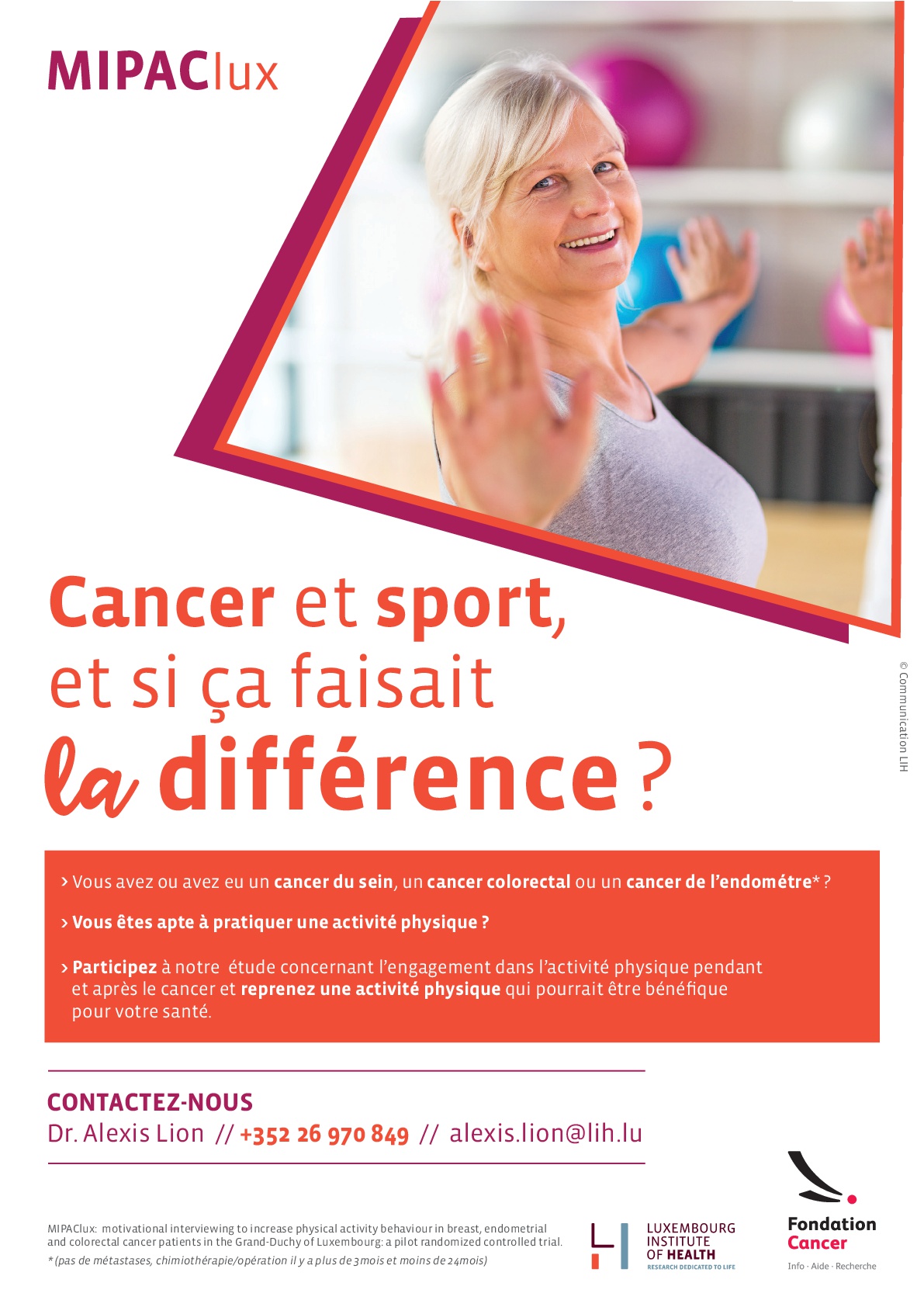

Physical activity is a therapeutic adjuvant. It is a not only effective in the primary prevention of several cancer types, but it is also important for their treatment. Indeed, many studies published in recent years suggest a preventive role of physical activity on the risk of recurrence and death from cancer in patients under treatment. The benefits of physical activity on prognosis (e.g. cancer progression, development of new primary tumours, relapse) was shown for many cancer types including breast, endometrial and colorectal cancer.
Physical activity promotes the maintenance and development of cardiopulmonary capacity, muscle strength, bone density, flexibility and balance. It also helps to better manage body weight and reduces tiredness. In addition, it has positive psychological effects, improving sleep, increasing self-esteem and reducing depression and addiction. Therefore, physical activity contributes significantly to improving the quality of life of cancer patients.
Despite the demonstrated benefits of sports and its prescription by physicians, the participation rate in therapeutic sports courses remains generally low. Prescribing alone does not seem to be sufficient to permanently alter the behaviour of patients towards a more active lifestyle. “Motivational interviews” are an approach that uses open discussions between an advisor (e.g. a nurse with specific training in motivational interviewing) and a patient to develop the latter’s motivation in order to obtain a durable change in behaviour. Such interviews were shown to be effective in increasing the level of physical activity of patients with chronic diseases.
The project MIPAClux will study the feasibility and effectiveness of motivational interviews to permanently alter the behaviour of cancer patients with regard to physical activity. It will focus on patients with non-metastatic breast, colon or endometrial cancer. Two randomly selected groups of patients will be analysed: one group will receive, in parallel to their treatment, one motivational interview per week during 12 weeks, and a second group, serving as control, will only receive the treatment. Several measurements will be taken in both groups before and after the trial, and six months later. The results of this pilot study will evaluate the value of introducing motivational interviews into clinical practice.
http://www.sport-sante.lu/index.php/fr/blog/254-mipaclux
http://www.cancer.lu/sites/cancer/files/files/CP_Recherche_Lion_Theisen_FR.pdf

for articles/videos/studies
Healthcare professionals who wish to be part of a unique network, providing access to up-to-date, accurate and validated information about clinical research.
Investigators and study staff who wish to be part of a unique network, in order to stay abreast of clinical trials taking place in Luxembourg and who are willing to further develop their competencies.